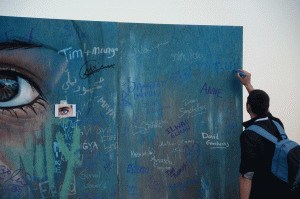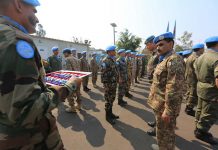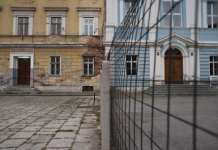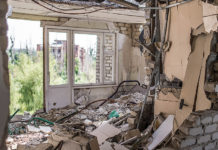
Le Sommet Mondial Humanitaire a aussi mobilisé la communauté des chercheurs aux problématiques humanitaires. Avec la déclaration présentée aux participants à Istanbul, il s’agit d’une initiative qui devra être précisée dans les mois qui viennent, car il est évident qu’il ne peut s’agir de consignes concernant la substance de la recherche. Mais en même temps, c’est aussi un appel des signataires soulignant leur responsabilité en tant que chercheurs et membres de la société civile.
Istanbul, Turkey – The future of effective responses to humanitarian crises depends on developing a strong base of knowledge about current emergencies, future threats and their contexts; the populations affected by these emergencies; and the legal frameworks, institutions and interventions that seek to meet humanitarian needs and resolve these crises. Those engaged in humanitarian studies, which includes research and education, are essential to this effort.
Humanitarian studies critically examines the ways in which humanitarian crises originate and evolve, how they affect people, institutions and societies, and the responses they trigger. This field is not simply about being an instrumental partner to humanitarian actors in addressing the policy and practice issues of today. Humanitarian studies is about critically engaging with forces and factors that create positive change in order to imagine and achieve a different future for the world.
Humanitarian studies scholars present at the World Humanitarian Summit (WHS) and the International Humanitarian Studies Association (IHSA) make the following six commitments:
1. We commit to make humanitarian research more collaborative and inclusive, especially with non-traditional knowledge actors and affected communities, and to ensure that knowledge is relevant to policy and practice.
2. We commit to research the impacts of the WHS – both positive and negative – on those affected by humanitarian emergencies and the future of humanitarian action. This research will include assessing the fulfillment and non-fulfillment of commitments made by WHS participants; the impact of those commitments; and the process and history of the summit itself.
3. We commit to further develop and adopt evidence-based approaches relevant to humanitarian research. Member states and humanitarian actors should support the achievement of this commitment by making humanitarian research and education a political, financial, and operational priority.
4. We commit to localize humanitarian research and education within the regions and communities affected by emergencies by recognizing, establishing, supporting and collaborating with research and educational institutions in crisis-affected areas. Member states should work to remove political, regulatory, and financial barriers that impede research and prevent the development of research institutions in crisis-affected areas.
5. We commit to improve the impact and increase the use of humanitarian research
by encouraging and supporting trans-disciplinary research that collaborates with non-traditional knowledge actors. To this end, we will strive to make our research accessible and relevant beyond traditional venues, such as conferences and publications, by placing the enfranchisement of affected communities themselves at the center of our work.
6. We commit to protect academic freedom, uphold scientific ethics, and be accountable for the research we do, how it is undertaken, and how it is used. We will seek to make our results and data as open and public as possible, ensuring that our ethical obligations to the populations we research and those we research them with come first.
Dorothea Hilhorst
Nathaniel Raymond
David Cantor
Alpaslan Özerdem
Doris Schopper
Oreste Foppiani
Galya B Ruffer
Graciela Loarche
François Grunewald
Michael van Rooyen
Michel Veuthey
Karl Blanchet
Ranjana Mukhopadhyaya
Lucatello Simone
Alexander Betts
Dan Maxwell
Gilles Carbonier
Antonio Donini
Simon Lambert
Alex de Waal
Dennis Dijkzeul
Joost Herman
Mihir Bhatt
Julia Steets
Kirsten Johnson
Bertrand Taithe
Wendy Fenton
Kristin Sandvik
Mitulo Silengo
Lydia Poole
Ibrahim Awad
Mahbuba Nasreen
Jacob Opadeyi
Wasseem Abaza
Ezzeddine Abdelmoula
Michael Barnett
Jyotsna Puri
Tanja Granzow
Cassie Kenney
Jeremy Collymore
Andrew Collins
Catherine Bragg
Alistair Edgar
Martine Najem
Seun Kolade
Mukesh Kapila
Kirsten Geldorf
Helen Young
Graham Sem
Anna Goos
Susan Akram
Patrick Vink
Wolf Dieter Eberwein
Randolph Kent
Bonaventure Rutinwa
Grotius International
Derniers articles parGrotius International (voir tous)
- 54h pour innover pour l’Afrique – 13 juin 2019
- Guide Pratique Des Associations Et ONG Internationales Au Togo – 26 avril 2019
- Paul Salvanès, « La haine qu’il faut » – 13 mars 2018







